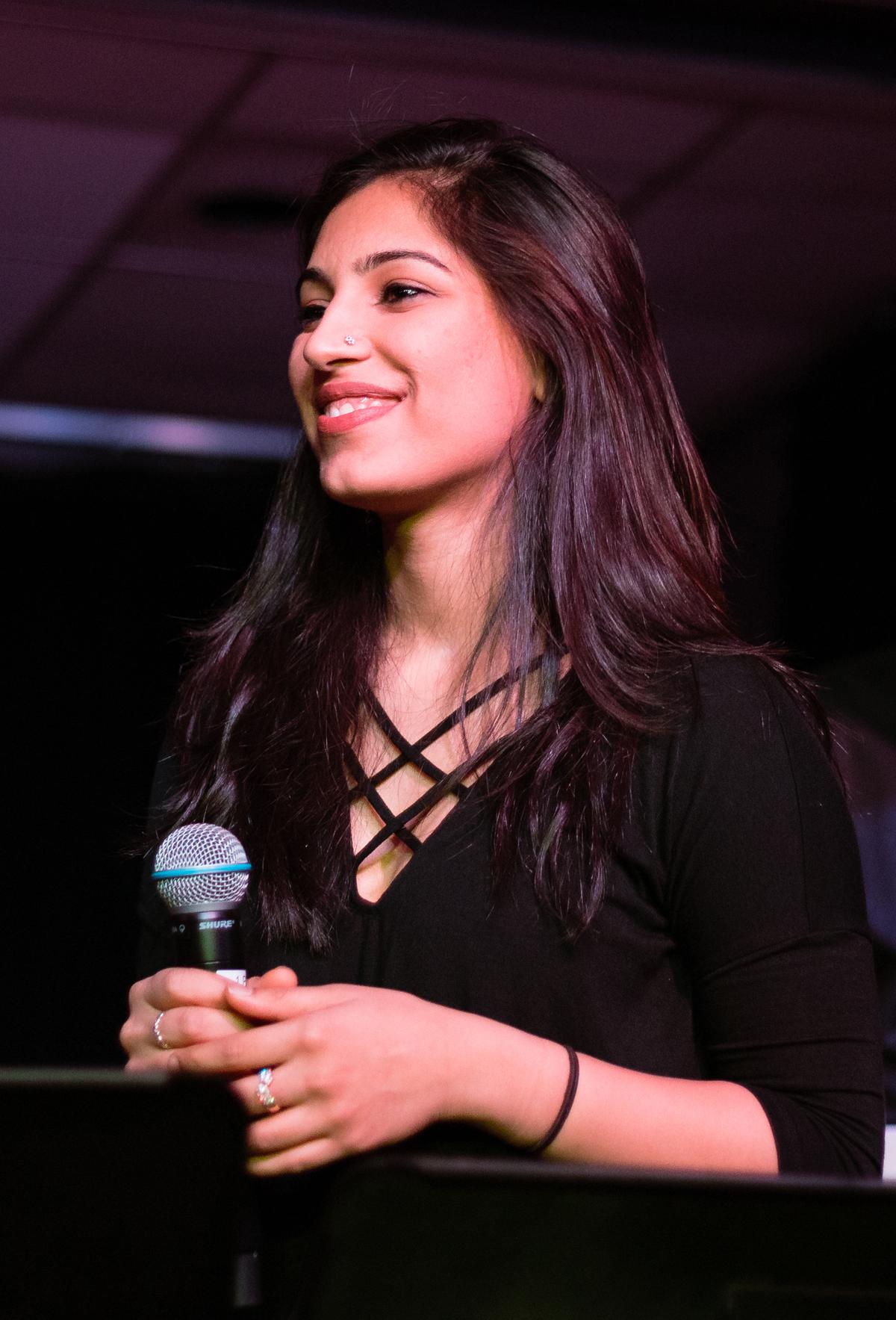Amira and Vasundhara explore Faiz Ahmad Faiz’s poem ‘Subh-e-Azadi’ in a sonic landscape of traditional ragas and electronically modified sounds
Amira and Vasundhara explore Faiz Ahmad Faiz’s poem ‘Subh-e-Azadi’ in a sonic landscape of traditional ragas and electronically modified sounds
Musicians Amira Gill (25) from Delhi and Seattle-based Vasundhara Gupta (27) are voicing the verses that build a haunting narrative of Partition. Their composition, the eponymous rendition of legendary poet Faiz Ahmad Faiz’s iconic poem ‘Subh-e-Azadi’, is the theme song of Child of Empire, an animated, VR (Virtual Reality) docu-drama. The film, produced by Project Dastaan, a peace-building initiative, which reconnects Partition refugees with their childhood homes in VR, and Anzu Films, premiered in January at the Sundance Film Festival 2022. Released on all music-streaming platforms on August 26, the tune explores Faiz’s poetry in a sonic landscape that traverses traditional ragas and layers of electronically modified sounds.
The film’s scriptwriter, Omi Zola, had approached Amira last year to work on its music score. She lapped up the opportunity and roped in Vasundhara, who she had first met at Berklee College of Music (Boston) in 2015. The duo has collaborated before for two experimental projects: a spoken-word ambient piece for the 2021 album called Manam and Delhi-based art gallery Nature Morte’s Artsounds in 2020. “We started working on the film’s score by mid-August last year. Usually, the score of the film is written once it’s locked, but because of time constraint, we wrote it while the film was still being made. The theme song was commissioned to us in October and we took three weeks to complete it,” says Vasundhara.
The song produced by Vasundhara, and mixed by music composer Ishaan Chhabra, features Chennai-based percussionist Praveen Sparsh and Japanese sarangi player Yuji Nakagawa. It’s layered with over 15 percussion instruments — kanjira, pakhawaj, dholak, udu, mridangam, taiko, djembe and pandero to name a few — that blend with the melodic timbres of sarangi and Amira’s vocals. “I had written the sarangi interludes and recorded them for Yuji. For Praveen, I laid out a little rhythm belt, using electronic elements in percussion with kanjira, a bell and a duff. That was my first layer. I sent it to him and he got back to me with so much more that fit the song,” says Vasundhara. Between several Zoom calls and research on the poem, the duo had no references for composing the song. “When we started writing the song, there was no other rendition of the poem. Initially, we thought of composing it in Raag Bhairav, but later we just stopped thinking of the raga and focused on the emotion and mood of the song. We laid out an emotional chart,” shares Vasundhara.
The duo wanted the song’s intro to emote the mysterious, dark and tragic opening line ‘yeh daag daag ujaala, yeh shab gazidaa seher’ (this light, smeared and spotted; this night‐bitten dawn), and moved towards the end of the poem with a feeling of hopefulness resounded in the last line ‘chale chalo ki abhi wo manzil nahi aayi’ (keep walking, for we are yet to reach our destination). “The intro is minor; the outro is more of a major melody, sonically speaking. The ragas used are Puriyadhanashree and Yaman,” adds Vasundhara, who arranged the song using softwares like Ableton live.

Amira Gill
| Photo Credit: Special Arrangement
One of the biggest challenges for the duo was to unpack the song lyrically and arrange it in a rhythmic pattern. Amira says the poem was written as a journey; an urdu nazm, not a song. “There was neither an obvious rhyme scheme nor a decipherable structure that could fit within the context of a song. Also, we were asked to keep it under five minutes,” she says. The two don’t speak Urdu. To get the pronunciation right, they heard many YouTube recordings of the poem and reached out to Urdu speakers. “Then we picked the lines we wanted to keep, arranged them into sections, and fixed the rhythmic pattern. We also ran this by Faiz Sahab’s eldest daughter Salima Hashmi ji because we didn’t want to offend anyone for altering the poem,” says Amira.
The song has been produced with support from the Faiz Foundation and Salima. “When she heard the song, she said it was modern yet powerful, but most of all she was elated about the fact that people from our generation were relating to Faiz’s poetry and this one happens to be the prolific writer’s only poem on Partition,” Amira adds.
























